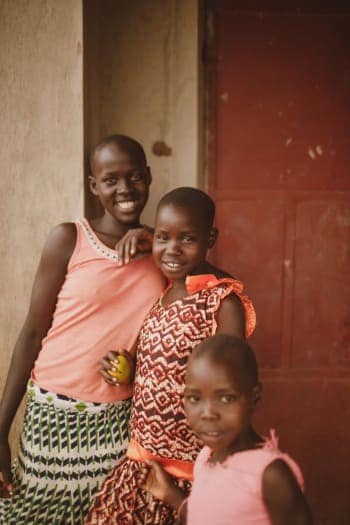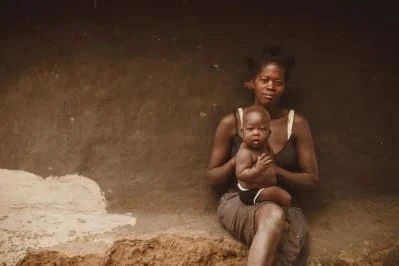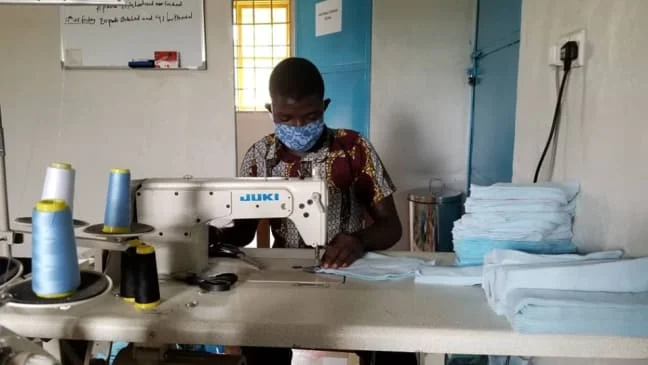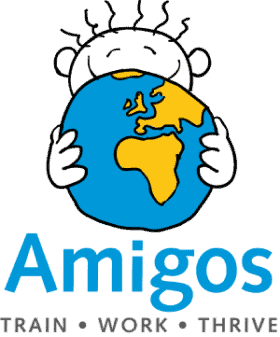Nobody likes talking about periods, but for half of the world’s adult population, they are an unavoidable fact; an inconvenience that has to be lived with. Period poverty is an acknowledged problem across the globe and in the UK countless organisations, institutions and charities strive to ensure that no woman is without sanitary wear because she can’t afford it.
For most of us, it is hard to imagine what it would be like to have a period and nothing to use. But for people living in poverty in the developing world, where talking about periods is taboo and there is limited access to clean, running water and most people only possess one set of clothes, having a period is life limiting.

‘If you educate a girl, you educate a family’
Girls in School
Families where mothers are educated are shown to have a much greater chance of surviving and rising out of poverty than those whose mothers are illiterate. Yet, according to the United Nations Girls’ Education Initiative (UNGEI), half of girls aged between 15 and 24 are illiterate, and 80% of girls don’t go to secondary school. What’s more:
- 46% of girls in Uganda are married by the age of 18
- 10% are married before they turn 15; in rural Uganda, this figure rises to 33%.
- 35% of girls drop out of education due to marriage.
- A further 23% drop out due to pregnancy (Ugandan teen pregnancy rates are among the highest in the world, with the poorer regions seeing a much higher rate than the national average of 23%).Yet, UN statistics show the huge impact that educating females can have:
- A 1% increase in women’s literacy is three times more effective in reducing child death rates than a 1% rise in doctors.
- A child born to a literate mother is 50% more likely to survive past the age of five.
- Just one extra year of secondary income can increase a woman’s earning potential by 25%.
- The Council on Foreign Affairs suggests that, globally, every extra year of education completed by a woman will reduce the risk of her children dying in infancy by 10%.

By providing the most in-need girls and with sanitary wear and by providing the girls and their communities (male and female) with training, we will see a direct impact on key social markers such as health, mortality rates and sanitation. This potential impact is highest in the rural areas where Amigos operates, where consistent access to education is seen as a critical factor to ending poverty.
Our programme
In order to ascertain the depth of the issue, Amigos’ Ugandan team surveyed 50 girls in communities where we work. Here’s what they said:
- 50% didn’t know what was happening to them when they got their first period
- 32% were always embarrassed about menstruating (a further 32% said that they were sometimes embarrassed).
- 40% didn’t have anywhere where they can comfortably change sanitary towels at school.
- 48% had missed at least one day of school during their most recent period.
- 50% use rags during their period, and 2% use newspaper. 48% used nothing.
- 24% have access to soap all the time (68% sometimes and 8% never).
This CAN be changed.
Amigos’ Menstrual Hygiene Management (MHM) programme has been created to provide up to 5,000 Ugandan girls with reusable sanitary products, to educate communities on menstrual health, and combat period poverty and shame. Long term, the programme will enable girls to go to school all month long, regardless of whether they have their period.

As well as providing affordable sanitary wear to girls who need it most, this programme will also provide a potential income stream to Kira Graduates. Trainees will be trained in making reusable sanitary packs, which they can then sell at the agreed affordable price within their communities. In addition, community members will be taught how to make affordable liquid soap which can be used for washing clothes as well as general hygiene. It is a win, win situation: trainees earn money, girls can go to school, and communities are educated on hygiene and desensitised to period shame.

